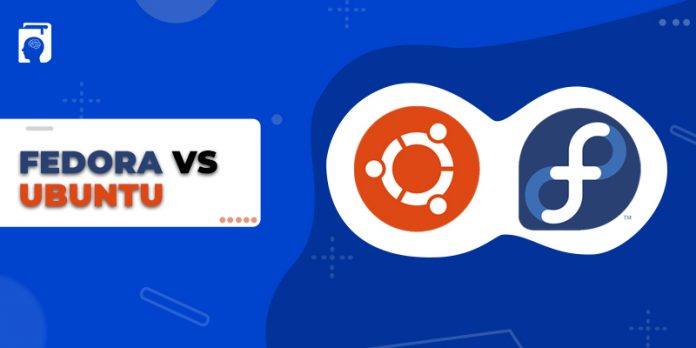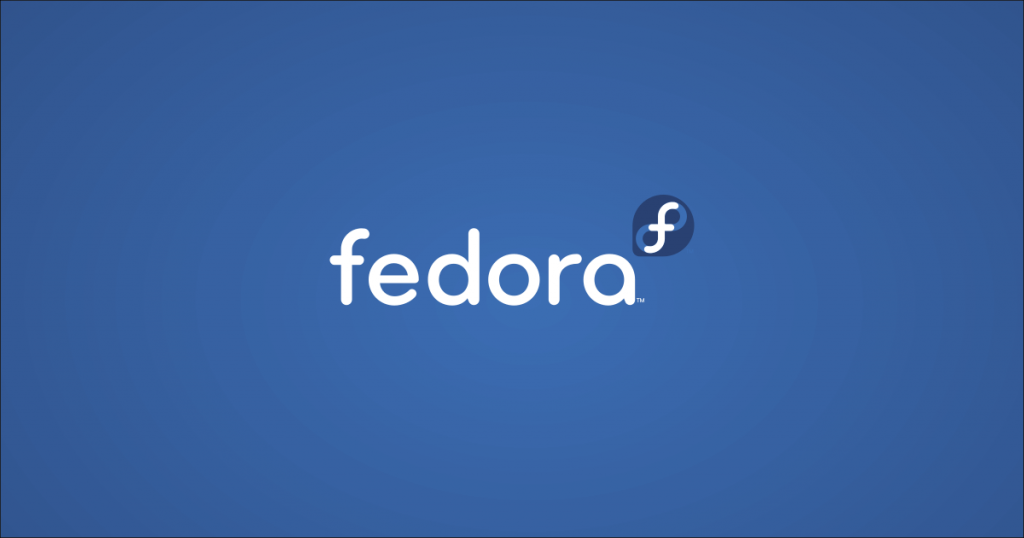
Fedora vs Ubuntu, which one to choose? Well, it’s a tough call. Both are sought-after Linux distros with thriving ecosystems and growing use cases. Both have a lot of overlap yet are poles apart. It is but human to be confused about which Operating System to choose for your unique requirements, especially in lack of knowledge. So, let’s bridge the knowledge gap with a detailed, evidence-based comparison between the two. Besides focusing on the differences between Fedora and Ubuntu, we also elaborate on what they are and what are their features, benefits, and drawbacks.
Differences between Fedora and Ubuntu: An Introduction
Two techies, Linus Torvalds and Richard Stallman, independent of each other, came up with an open-source operating system. They named it Linux, a combination of Linus and Unix. Gradually, Linux evolved with the advent of new technologies and use cases. As of now, it’s the third most popular OS with a market share of 2.09% (Statista). Better still, its share of the web server market is a staggering 96.3%. Come 2027, Linux’s global market will be 15.64 trillion USD (Fortune Business Insights). Even the likes of NASA, ESA, and SpaceX rely on Linux to power their space endeavors.
Linux grew with time and so did its selection of software range, libraries, configuration files, and management tools. There’s a term for them, Linux Distribution or simply Linux Distro. Presently, over 600 distros are active and about 500 are in the pipeline. Among the active ones, Ubuntu and Fedora stand out. These Linux distros have growing ecosystems and use cases. Despite being Linux-based, both distros have inherent differences, from release cycles to the target audience. Let’s dive into the differences between the two but before that, it’s wise to know their similarities.
Fedora vs Ubuntu: Similarities
Powered by similar underlying technology, Ubuntu and Fedora have some overlap.
- Since these two are open-source distros, their source code can be downloaded for free and personalized to specific requirements.
- Both have vast and active communities that are continuously helping them grow and evolve.
- Expect a vast selection of desktop environments with both operating systems. KDE, GNOME, Xfce, and LXDE, you name it.
- Both rely on package managers for installation, updates, and other tasks. However, the difference lies in the type of package manager used.
- Security is a priority for both, releasing frequent updates to fix vulnerabilities.
- Both allow professionals to leverage the text-based UI (command-line interface) to execute programs and interface with the system.
Fedora vs Ubuntu: Head-to-Head Comparison
With similarities out of the way, it’s time to explore the difference between Fedora and Ubuntu.
- Ownership & History:
Ubuntu has a relatively short evolution history dating back to 2004. Mark Shuttleworth, a South African entrepreneur, had another distro, Debian, modified into a user-friendlier OS in line with the open-source principles. The resultant distro was named Ubuntu, which means “humanity to others” in Zulu. The name echoes the distro’s very essence, which is its user-focused approach. Shuttleworth’s foundation, Canonical Ltd. owns it and is responsible for its development.
Fedora, on the other hand, saw the light of day in September 2003, just 13 months before Ubuntu. Fedora’s origin is linked to 2002 when Warren Togami developed it as a university project to enhance the software repertoire of the Red Hat Linux distro. Fedora was different from its parent distro in that it was way more collaboration-friendly. Presently, Red Hat Enterprise Linux, an IBM initiative, owns Fedora Project and provides infrastructure, promotional support, and other resources.
Conclusion:
Since both distros have a solid backing, there isn’t much to choose between the two.
- Popularity & Market Share:
Since the release of the first version, Ubuntu 4.10, or “Warty Warthog” on 20th Oct 2004, Ubuntu has come a long way. It is presently the leading Linux distro with a significant market share, 22% in the US alone. Over 13% of all websites currently are powered by Ubuntu. Among 3.5 billion Linux users, 40% use Ubuntu. On the last count, 40 million desktop users the world over rely on Ubuntu.
In terms of popularity, Fedora with a 0.61% market share ranks fourth among the Linux distros. When it comes to the Server And Desktop OS category, Ubuntu is placed 10th while Fedora trails behind at the 27th spot. The distro finds maximum use cases in industries like IT (12%) and Software (7%). Likewise, the user base is centered in the US (43.95%), India (9.86%), and the UK (4.56%).
Conclusion:
Ubuntu is hands down the more popular distro. But then, what works for most users might not work for you.
- Desktop Environments:
Both distros rely on GNOME for their desktop environments. However, both also provide a variety of popular desktop environments, including KDE Plasma, Xfce, and MATE. However, Fedora, being a “bleeding edge” distro, also offers Cinnamon and LXQt, which aren’t supported by Ubuntu.
Conclusion:
Note that, your user experience largely depends on the desktop environment you opt for. So, it’s wise to choose your distro carefully. You can try out different ones to arrive at informed decisions.
- Release Cycle:
Both release new versions periodically but with varying frequencies and approaches to managing releases. Lasting for nine months, Ubuntu’s regular release cycle is relatively shorter, typically 6 months. However, its Long-Term Support (LTS) is made available once every two years, lasting for 5 years. For Fedora, the new version arrives every 6 months, which is valid for the next 13 months.
Conclusion:
Therefore, Fedora’s quicker releases make sense if you seek the latest features and technologies. On the other hand, Ubuntu is ideal if you are looking for stability and long-term support.
- Performance & Speed:
Performance and speed are hardware specific for the most part. Other factors like the OS version and the specific application you wish to execute also have a role to play. Generally, both Fedora and Ubuntu are performance-oriented. However, if you dig deeper, the differences become evident.
For instance, Fedora shuts down quicker whereas starting Ubuntu is a breeze. Ubuntu has a more vibrant community, which translates into greater support. On the other hand, Fedora is a bleeding-edge operating system, offering updates and new software more frequently than Ubuntu.
Conclusion:
It’s wise to try out both distros with different hardware in different settings to zero in on the right OS for your unique requirements.
- Package Managers:
The two distros leverage a different package manager to handle software installations, deletions, and updates, besides other tasks. For Ubuntu, it’s APT (Advanced Package Tool), whereas Fedora prefers DNF (Dandified Yum). Either of them is highly efficient when it comes to installing, updating, and getting rid of software, and minimizing dependencies. The difference is, however, evident in the types of software packages and repositories they use. So, it becomes each to his own proposition.
Conclusion:
It all boils down to your specific needs and personal preferences. If a Debian-based system works for your requirements, go for Ubuntu with APT. Conversely, if you are ok handling a Red Hat-based system, look no further than Fedora.
Differences between Fedora and Ubuntu
What is Fedora?

Well, it’s a Linux distro based on an open-source OS created by Red Hat. Since the OS is premised on Linux, which is an open-source platform, Fedora is free to access. Fedora OS utilizes the DNF package management, the GNOME ecosystem, and the Anaconda installation.
It covers three platforms, including:
- Workstation Fedora for Desktops
- Fedora Atomic for Cloud Computing
- Fedora Server for Servers
If the Fedora Project is something to go by, Fedora is unrestricted, easy to modify, and freely distributable. It includes apps and bundled software for enhanced capabilities. The OS provides the same uniformity, operations, and performance as a standard operating system.
Features of Fedora
The Fedora Unix has the features to captivate your imagination and perhaps help choose between Ubuntu and Fedora.
- Comes in a variety of architectures
- Dependable and robust
- Features one-of-a-kind security measures
- Includes a reliable firewall
- Simple to operate
- Provides assistance to a vast community
- Regularly updated and improved
- An appealing user interface
- Includes tools for working in live mode
- Improves Internet performance
Advantages of Fedora
Let us walk you through Fedora OS’s advantages. They will help you choose between Ubuntu and Fedora.
- Highly secure OS
- Has a plethora of graphical functions
- Performs automatic updates
- Supports a wide range of file types
- Provides a fine selection of educational applications
Disadvantages of Fedora
The drawbacks Fedora makers need to work on are:
- The setup process is lengthy and intricate.
- It necessitates the use of extra software tools on the server.
- The general framework for multi-file objects is lacking.
What is Ubuntu?

It is a Linux operating system developed by Canonical Company Limited. It is free to use for both personal and business purposes. The first version to be launched was Ubuntu PC. Later versions were created for Server and Core, which they use in IoT and robotics, respectively.
The Ubuntu society is based on the Ubuntu Manifesto, which states:
- Software must be freely available.
- Software applications should be accessible to individuals in their native language, irrespective of disorders.
- Individuals should be able to customize and modify the software the way they want.
From the Linux kernel version 5.4 to GNOME 3.28, Ubuntu provides lots of types of software that cover everything, including:
- Word processors and spreadsheets
- Web access
- Internet server software
- Email servers
- Development tools and applications
- A fine variety of games
Features of Ubuntu
Ubuntu has some extraordinary features that make it stand apart from the rest. These include:
- Office Software
Ubuntu has a program called LibreOffice that allows us to generate office files, worksheets, and presentations. LibreOffice is an open-concept suite compatible with MS Office. That means we can simply and rapidly open and alter files like Word docs, PowerPoint presentations, and Excel sheets, as well as exchange them with others. Google Docs may also be accessed from the computer.
- Open source OS
During the innovation phase at Ubuntu, the code is publicly shared. As a developer, hardware designer, or Integrator, you can start creating Ubuntu apps and systems right away because they are open about their plans for future releases.
- Web Browsing
Recognized for their security and agility, Ubuntu and Firefox make surfing the web delightful. Ubuntu now offers Chrome as well as other browsers, which can be installed through the Ubuntu Software Center.
- Gaming
There are a variety of games in Ubuntu, ranging from Sudoku to first-person shooters to keep you entertained. Even games from the Unity and Steam ecosystems are also readily available. One can select from critically renowned games, such as Dota 2 and Counter-strike: Global Offensive. When it comes to Debian vs Ubuntu, Ubuntu has an edge here.
- No Antivirus
Security measures in the Windows platform are quite conflicting. The maker of the Windows operating system, Microsoft, also profits handsomely from hogging products that protect Windows apps against security flaws. Even without the inclusion of any overpriced antivirus scanners, Ubuntu is one of the safest options out there. However, it is not 100% malware-free.
- Hardware auto-configuration
Hardware auto-configuration is just another characteristic of Ubuntu Debian. The majority of device drivers come already pre-installed. Anyone who has installed a standard version of Windows knows how time-consuming it is to search for drivers after the OS has been installed.
- Software Repositories
Installing a variety of programs from the repository in a few taps is a huge benefit with Ubuntu. Besides being free and more secure than .exe files acquired from unknown sources, installing programs from a centralized location is efficient.
- Multiple desktops
Virtual desktops are like split web surfing. We don’t realize their importance unless we put them to use. There are a variety of third-party applications for accomplishing the same function on Windows, but only a handful of them work well with Vista and above.
Advantages of Ubuntu
Ubuntu comes with some stunning benefits. You should know them to determine the differences between the Fedora server and the Ubuntu server.
- The free and open-source OS
- Can run without installing
- Customizable
- A comprehensive OS for desktops
- Supports Windows tiling
- Features Ubuntu version command
Disadvantages of Ubuntu
Ubuntu isn’t perfect. Here’re its drawbacks.
- Has compatibility discomfort with software apps and tools.
- Various other Linux OSs are much better than Ubuntu.
- Commercialization issues with open-source software.
- Loaded with boring and obsolete gaming titles.
Ubuntu vs Fedora: Key Points to Remember
Now that we’ve gone through Fedora and Ubuntu, let’s find out the similarities and differences between Fedora and Ubuntu.
- Ubuntu is developed and controlled by Canonical Ltd, while Fedora is developed and supported by RedHat, IBM, and its contributors.
- The distribution of Ubuntu is based on Debian. Fedora, on the other hand, has its distribution based on RedHat, RHEL.
- Ubuntu was launched in Oct 2004, while Fedora was launched in Nov 2003.
- Ubuntu makes use of apt Package Manager, while Fedora has DNF Package Manager.
- Ubiquity is the installer for Ubuntu while Anaconda is for Fedora.
- Ubuntu uses Debian-based software like .deb files and Apt-get. Fedora, on the other hand, uses RedHat-based software like Flatpak, RPM files, and Yum.
Fedora vs Ubuntu: Head-to-Head Comparison
We have summarized the Linux Fedora vs Ubuntu differences in a table form to help you understand more quickly.
| Parameters | Ubuntu | Fedora |
| Development and control | Canonical Ltd. | RedHat, IBM, and contributors |
| Distribution | Based on Debian | Based on RedHat, RHEL |
| Launch | October 2004 | November 2003 |
| Package Manager | apt | DNF |
| Installer | Ubiquity installer | Anaconda installer |
| Software | Debian-based software like .deb files and Apt-get | RedHat-based software like Flatpak, RPM files, and Yum |
Conclusion
When it comes to Fedora vs Ubuntu, it can be hard to take your pick. Both are good desktop operating systems with all the features an everyday user looks for. In the end, it is entirely up to you whether to choose Fedora or Ubuntu. If you are unsure, we recommend generating a live Disc of both options and testing them on a virtual system.
People are also reading:
